On the 27th of June 2020 our team travelled back to the Turtle Conservation Centre (TCC) of Cuc Phuong National Park from Hanoi after receiving another group of critically endangered turtles that had been confiscated in Can Loc District, Ha Tinh Province which included 9 Indochinese Box Turtles (Cuora galbinifrons) and 18 Bourret’s Box Turtles (Cuora bourreti).
This case gives an idea of the number of organisations and individuals that have to be involved in these confiscations and the effort they put in. The confiscation in Ha Tinh involved both the local police and Forest Protection Department (FPD) from the province, with cooperation from the Institute of Ecology and Biological Resources (IEBR) who support identification and recommendations for placement before they received the animals in Hanoi where they transferred them to the Asian Turtle Program (ATP) of Indo Myanmar Conservation (IMC) and the TCC.
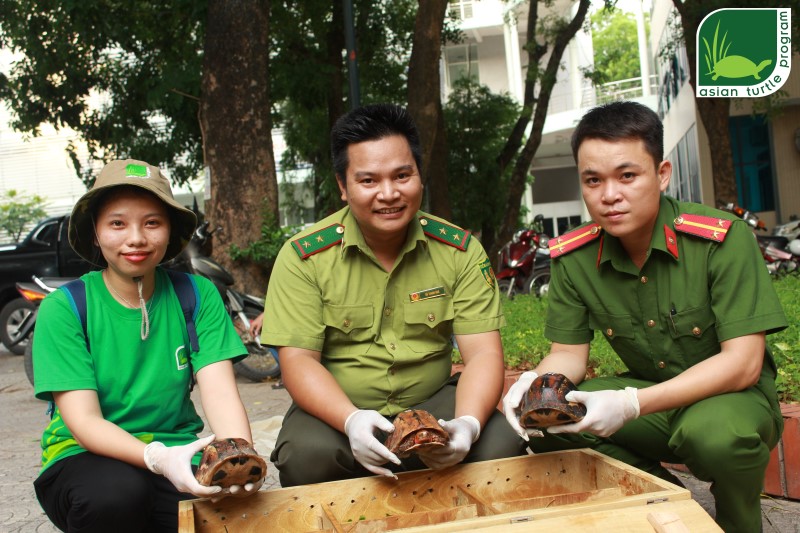
ATP/IMC collaborated with the Police in Can Loc District, Ha Tinh Province, and IEBR to rescue them and safely bring them to the TCC for urgent care. Photo by: Hoang Van Ha – ATP/IMC
This is only the start of the long process to get these turtles back into the wild. They now have to go through a period of quarantine, and sadly it is not unusual for the rescued animals to be in poor health, especially if they have been in the trade for a long period of time in poor conditions, such as hot weather. In some confiscations, animals are dead or dying when they come in, but if we are lucky, they have been in the trade for less time and in much better health. After initially focusing on rehydrating and getting them into the right temperature environment, we then have to build up their energy. Getting them to feed is not easy; many are so stressed that they simply will not eat, others are so unwell they need to be tube fed, and some require months of intensive care. We hope they respond to treatment and recover but not all do.
We also have to perform health checks for parasites and diseases; over the last two years we have started trying to screen animals for Mycoplasma and Herpesvirus, which is an expensive process but the ongoing CoVID-19 pandemic highlights a need for. Wildlife diseases can spread in the trade and, as well as affecting humans, other wild species or populations can suffer from exposure to new diseases that might be inadvertently introduced from the trade. For some species, we have to complete genetic analyses to confirm they are the correct subspecies for release at the proposed release sites.
Even after the animals are recovered, we sometimes have to wait for legal cases to be closed before we can release. Once we have a green light, we have to make sure all the animals have identification microchips implanted and the shipping containers, transportation and required legal permissions to move and release animals are all prepared. These are legal cases that require the processing of a lot of paperwork and the involvement of a number of government departments. We work directly with the protected area management and sometimes other NGOs to coordinate these activities.
Once at the release site, we have to organise teams to trek into the forest, sometimes travelling so far that it requires the teams to stay overnight in the field. The lucky turtles are then released within a selected area of the correct habitat, spread out across a large area with all the release sites where the team also collect data on the release sites. Sometimes, within hours or days of returning home, another confiscation arrives; we never know when we will get the phone call about the next case or what it will include. Its hard work but rewarding to see the animals finally heading back to their new home.
We are always in need of support to allow us to complete more of our critical work, If you would like to support ATP’s work, please visit: https://asianturtleprogram.org/donate or make a donation to our PayPal: support@asianturtleprogram.org.
We would like to thank the Police of Can Loc district, Ha Tinh province for timely action during the confiscation, and IEBR for species identification. We are grateful to Cleveland Metroparks Zoo for supporting this rescue. We would like to extend our sincere thanks to all donors, supporters and partners who have been contributing to turtle rescue and conservation in Vietnam.
Press release by: Timothy McCormack (ATP/IMC) & Do Thanh Hao (TCC)
Date: 4th June 2020
Photo gallery
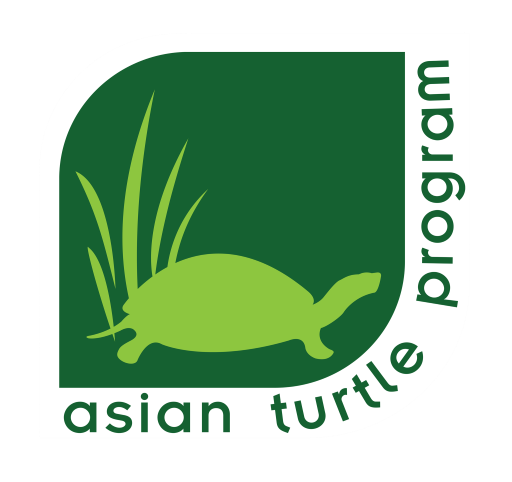
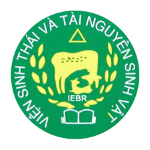

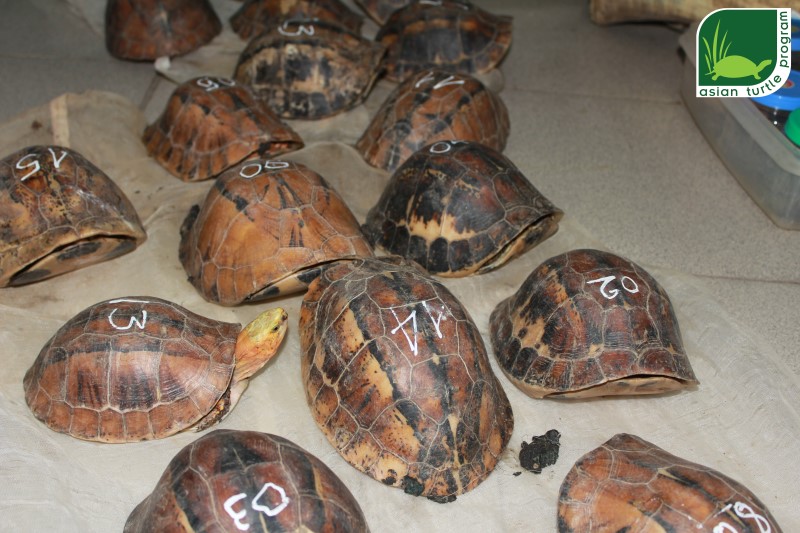
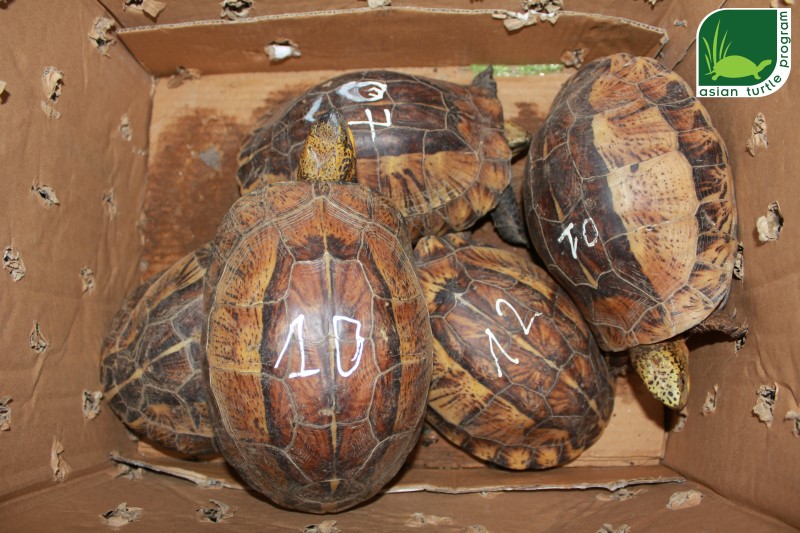
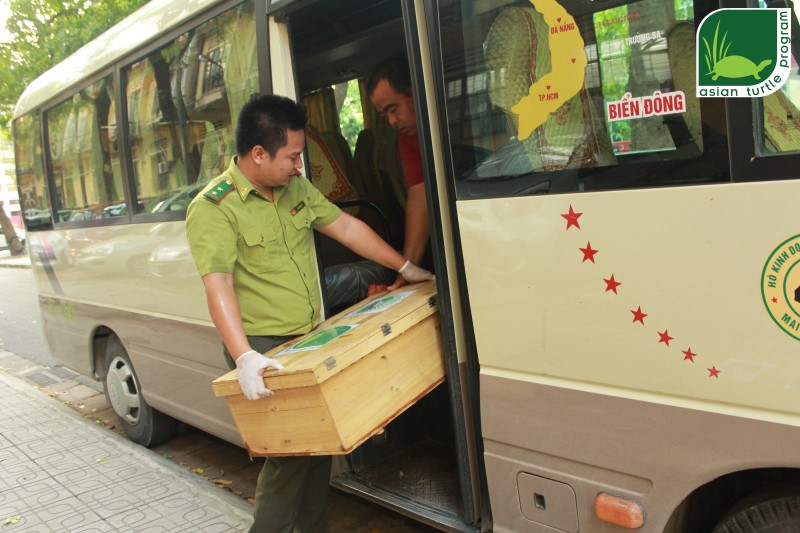
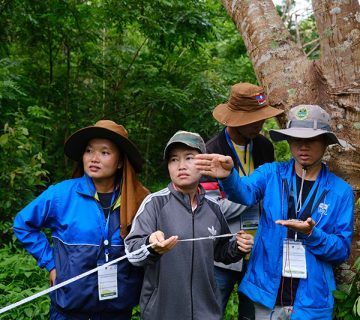
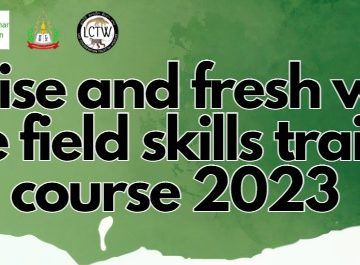
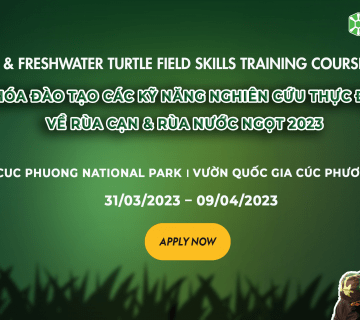
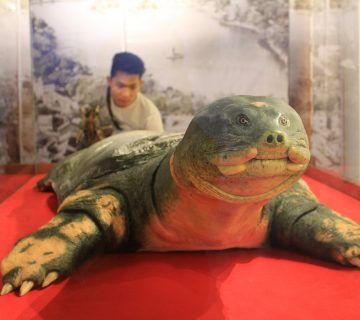

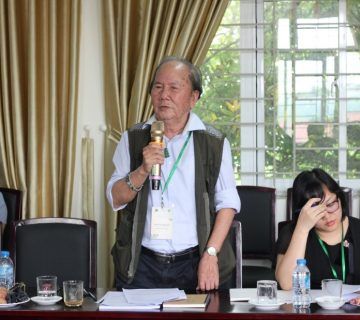
No comment